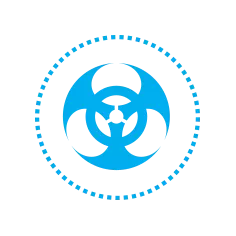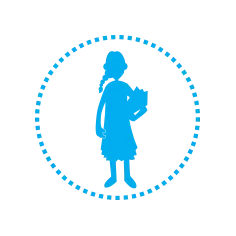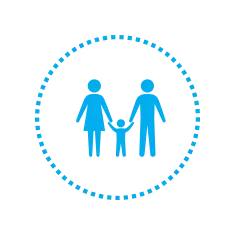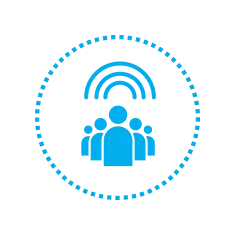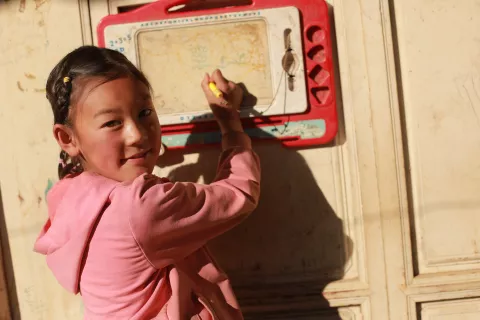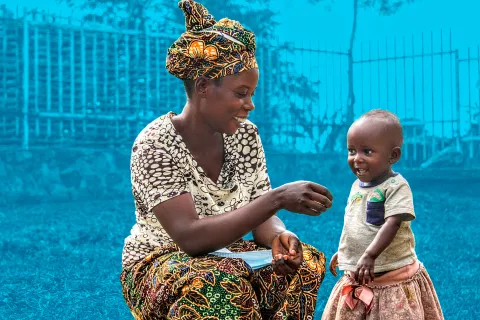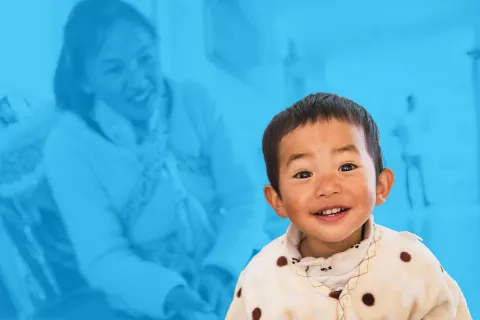South-South Cooperation for Children in Practice
Ten powerful examples of South-South cooperation for children in action.
- Available in:
- 中文
- English
COVID-19 and Desert Locust Response: 2020-2021
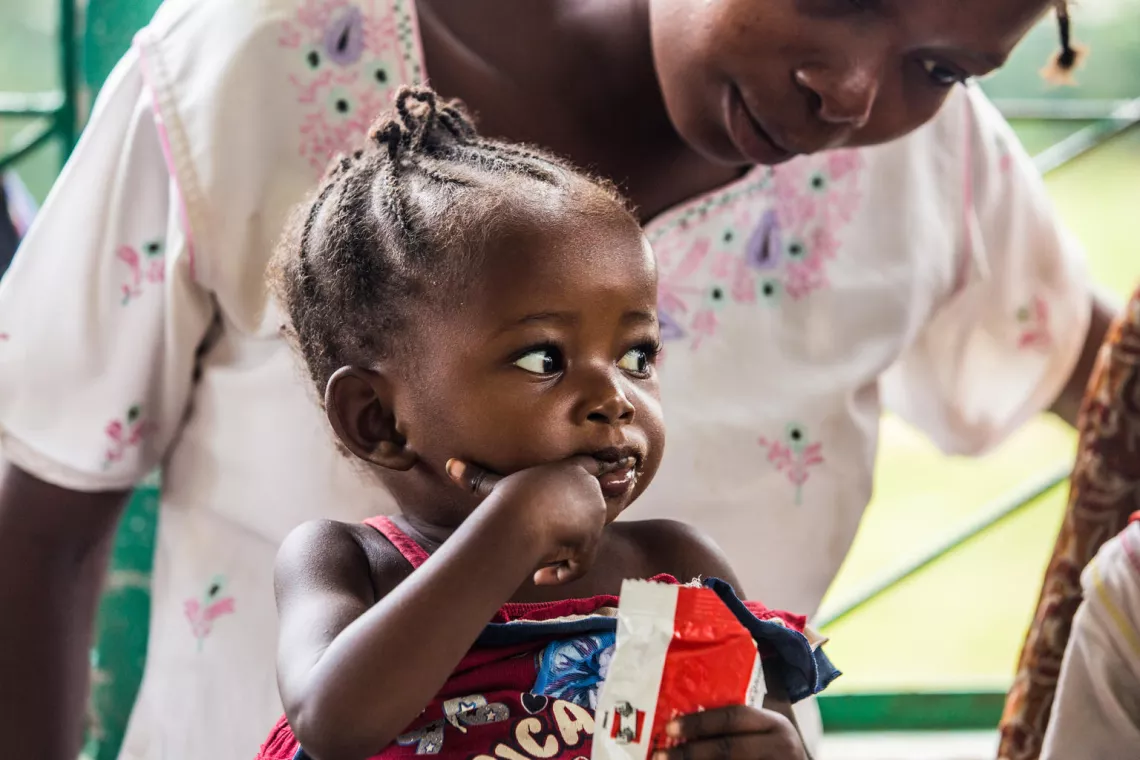
Mitigation of Nutritional Consequences of COVID-19 and Desert Locust in the Democratic Republic of the Congo (DRC) and South Sudan
In the Democratic Republic of the Congo (DRC), more than 4 million children and women were at risk of acute malnutrition in 2020. The situation is exacerbated by longstanding food insecurity and militia violence. The country is also facing multiple deadly epidemics including measles, Ebola and cholera.
In South Sudan, 1.3 million children under 5 years of age were estimated to suffer from acute malnutrition in 2020.
The locust infestation that ravaged East Africa in early 2020 and the COVID-19 pandemic is putting an even greater burden on vulnerable populations in both countries. Women and children are at most risk, and they urgently need life-saving nutrition support.
In the DRC, UNICEF is working with government partners to improve access to nutrition services and care in the most vulnerable provinces. This work, carried out in partnership with the China International Development Agency (CIDCA) is designed and carried out according to international norms and standards. It focuses on building the resilience of populations in preventing malnutrition through a community-based approach, including:
- Providing ready-to-use therapeutic food and therapeutic milk.
- Training health workers and community workers on severe acute malnutrition (SAM) and promoting infant and young child feeding (IYCF).
In South Sudan, the project focuses on:
- Increasing equitable access for girls and boys under 5 years of age to quality nutrition services for the early detection of SAM.
- Procuring ready-to-use therapeutic food to treat children with SAM.
Press releases:
Fighting COVID-19 by Providing Health and Nutrition Services to Women and Children in Cameroon, Ghana, Liberia and Senegal: 2020-2021
Cameroon, Ghana, Liberia and Senegal vary in terms of social and economic development, but they share many conditions and difficulties, including high under-five mortality rates, poor nutrition results, and insufficient access to maternal, newborn and child health services.
In Cameroon, 25 per cent of under-five deaths occur during the neonatal period. In Ghana, the national average rate for neonatal and under-five mortality is estimated at 27 and 56 per 1,000 livebirths respectively, while maternal mortality remains high at 308 deaths per 100,000 livebirths. In Liberia an estimated 11,000 children under 5 die every year from preventable and treatable conditions. In Senegal, the maternal mortality ratio remains high, with 236 per 100,000 livebirths in 2018, and a high neonatal mortality rate of 23 per 1,000 livebirths.
The COVID-19 pandemic is threatening to overwhelm these countries’ already vulnerable public health systems, putting mothers and children at an increased risk of acute malnutrition and dying from preventable causes.
- In Cameroon, the project provides health supplies in targeted districts, as well as materials for training health workers on basic infection prevention measures, immunization, newborn care and advice on methods for preventing COVID-19.
- In Ghana, the project procures and distributes nutritional supplies and equipment to health facilities. It also procures and distributes maternal and newborn care equipment and establishes maternal and newborn care units. Besides, it supplies equipment to support infant and young child feeding.
- In Liberia, the project provides supplies for routine quality care for newborns, and treatment of SAM in targeted health facilities.
- In Senegal, the project procures and distributes ready-to-use therapeutic food and essential medicine to health authorities in targeted regions.
Press releases:
- The Government of China makes contribution against COVID-19 in Cameroon
- China supports Government of Ghana efforts to improve child health and reduce malnutrition in COVID-19 outbreak with supplies and life-saving equipment
- China donates US$ 1 million to Senegal for the treatment of children suffering from severe wasting
Maternal and Newborn Child Health Support
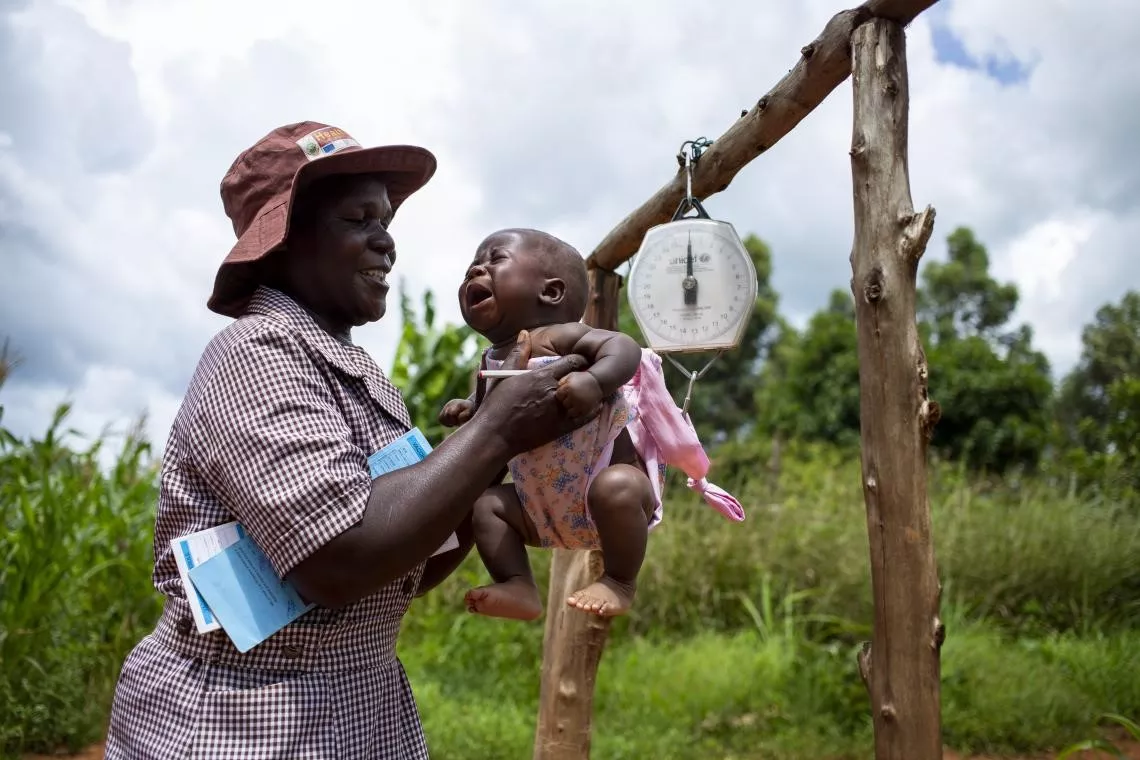
Projects to Improve Maternal, Newborn and Child Health in Eight African Countries: 2020
UNICEF is working with government partners in the Democratic Republic of Congo (DRC), Ethiopia, Kenya, Niger, Nigeria, Sierra Leone, Sudan and Zimbabwe, with support from the China International Development Agency (CIDCA) and the International Health Exchange and Cooperation Center (IHECC), National Health Commission of China.
Over the past three decades the world has seen remarkable progress in child survival, cutting the number of children worldwide who die before their fifth birthday by more than half. But there has been slower progress for newborns. Babies dying in the first month accounted for 47 per cent of all deaths among children under 5 in 2018, up from 40 per cent in 1990. Sub-Saharan Africa remains the region with the highest under-five mortality rate in the world.
This project by UNICEF and government partners improves maternal, newborn and child health in eight African countries by increasing access to quality health facilities and essential medicines for newborns and mothers. The projects are also building the capacity of health workers and communities in line with proven best practices in sustainable development.
Press releases:
- USD One million contribution from the People’s Republic of China to improve neonatal health in Ethiopia
- Niger receives US$1 million in aid from China
- Sudan’s midwives saving lives amidst COVID-19
- Chinese Government hands over medical supplies to improve newborn health
Emergency Response
Projects to Provide Humanitarian Assistance for Populations Impacted by Cyclone Idai in Malawi, Mozambique, and Zimbabwe: 2020
Cyclone Idai, which hit in March 2019, was the worst natural disaster in Southern Africa in nearly two decades. The cyclone affected 270,000 people and left 129,600 children in need of life-saving support.
UNICEF has been running three projects to help affected people in Malawi, Mozambique and Zimbabwe recover, in partnership with CIDCA and through China’s South-South Cooperation Assistance Fund modality. The objectives:
- Malawi: Reduce mortality and morbidity associated with emergency health diseases, improve water, sanitation and hygiene (WASH) and meet education, child protection and nutrition needs.
- Mozambique: Increase access to life-saving malaria prevention supplies and medication and procure essential equipment and supplies for affected health facilities.
- Zimbabwe: Restore access to water for drinking and hygiene purposes, provide temporary sanitation facilities and hygiene kits, restore health care services, and provide child protection services including psychosocial support, birth certificates and an improved protective environment.
Press Releases
- A New Friend for Malawi’s Children
- UNICEF and Government of China provide support to Cyclone Idai-affected families in Mozambique under South- South Cooperation Assistance Fund
- Government of China provides USD 2 million in aid to Cyclone Idai-affected families in Zimbabwe
- Rebuilding after a natural disaster during COVID-19
Life-Saving Emergency Assistance to Girls, Boys and Women Affected by Severe Acute Malnutrition in Somalia; Assisting Syrian Refugee Children in Lebanon
The humanitarian crisis in Somalia in 2017, which was triggered by the failure of consecutive rainy seasons, led to massive displacement, disease outbreaks and malnutrition. Half of the country’s population – 6.2 million people – were left in need of humanitarian assistance, some 4 million of them children. In Lebanon, Syrian refugee children and their education have been negatively impacted by conflict and war.
In collaboration with China’s Ministry of Commerce (MOFCOM), UNICEF ran projects with government partners as follows:
- In Somalia, the project provided life-saving therapeutic nutrition treatment for children and increased capacity and delivery of services to ensure treatment for children suffering from SAM. This included reaching women with integrated health and nutrition services.
- In Lebanon the project provided winter kits and education supplies to Syrian refugee children.
Press Releases
- China supports 86,000 school children in Lebanon
- A sachet of hope, a taste of recovery
- China contributes US $2 million toward UNICEF’s humanitarian response in Somalia
Early Childhood Development
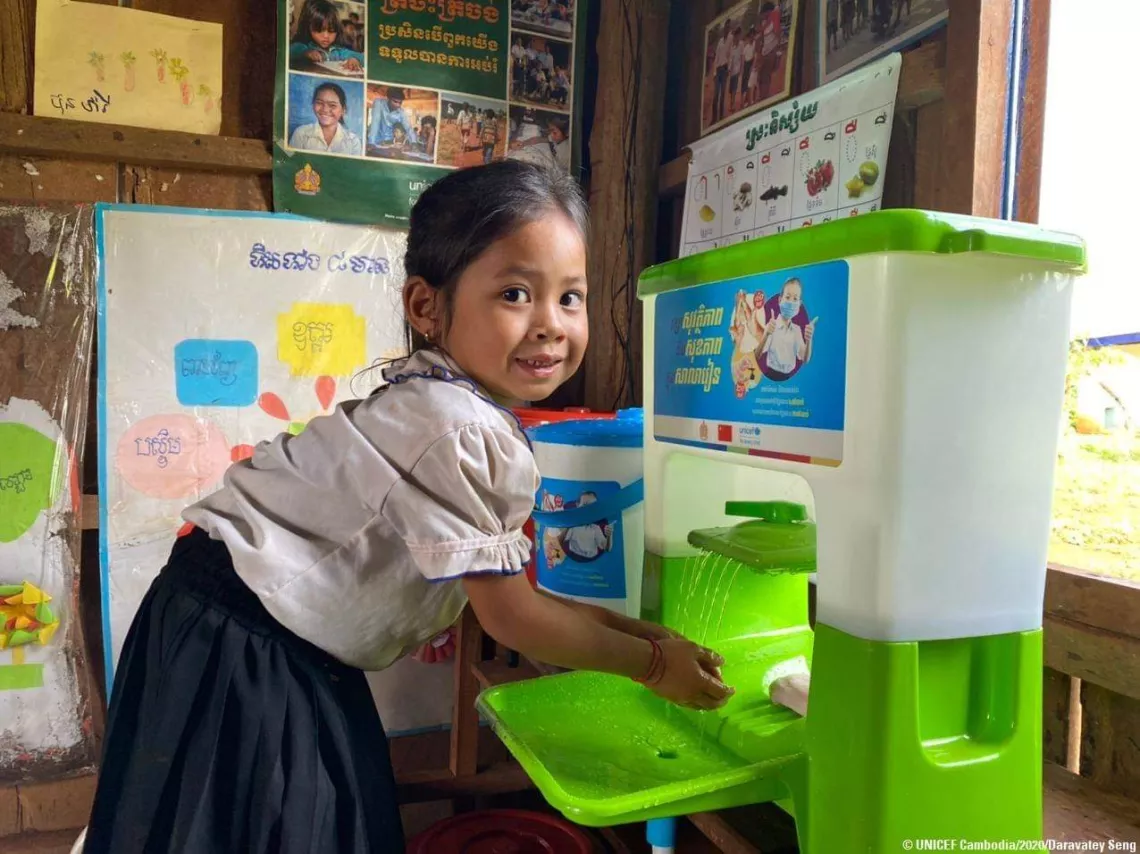
COVID-19 Response and Recovery for Early Childhood Development in Cambodia: 2020-2021
As COVID-19 hit Cambodia, young children, particularly those under 5 years of age and from remote and rural communities, lack understanding of personal hygiene and struggle to continue their studies under social distancing measures.
Parents are under stress due to school closures and financial pressure. Community preschools, which are key to providing early childhood development services to vulnerable children, lack the supplies to safely reopen. Support is needed for young children in Cambodia so that they can stay engaged in education.
This project is run in partnership with the Government of Cambodia and with China’s MOFCOM. The project is:
- Providing hygiene and sanitation supplies to community preschools so that they can reopen safely.
- Providing teaching and learning materials to community preschools to encourage children to come and study.
- Providing essential hygiene supplies to children without parental care or those at risk of family separation, and to front-line workers providing individual case management to vulnerable children.
- Providing promotional materials to preschool teachers and parents on the importance of a healthy and safe diet.
- Conducting nutritional screening and referral of malnourished cases to appropriate services.
Press Release
Early Childhood Development in the Face of COVID-19 in Myanmar: 2020-2021
As the COVID-19 pandemic hit Myanmar, children in the country, especially those under 8 years of age, are being impacted by the closure of early childhood development institutions and schools. As Myanmar’s public health system is stretched thin, medical workers are finding it difficult to care for their young children at home. Their households and communities need support to ensure the continuity of care and development for children.
This project is helping these children by providing support to health care workers, and providing support to early childhood development providers, so that they can mitigate the immediate and longer-term impacts felt by households and communities. The project is:
- Producing animations on COVID-19 to promote health, psychosocial care and activities for those with young children at home.
- Developing, translating, printing and distributing story books to increase COVID-19 awareness and psychosocial support in ethnic languages, and targeting young children and caregivers.
- Providing take-home early childhood development materials for health care workers with young children.
- Developing a psychosocial support training module for preschool teachers.
Press Release
- COVID-19 pandemic frontline workers receive toys for their children in Kachin State
- COVID-19: UNICEF provides 60,000 take-home toys to children of frontline workers and volunteers across Myanmar
Knowledge Exchange
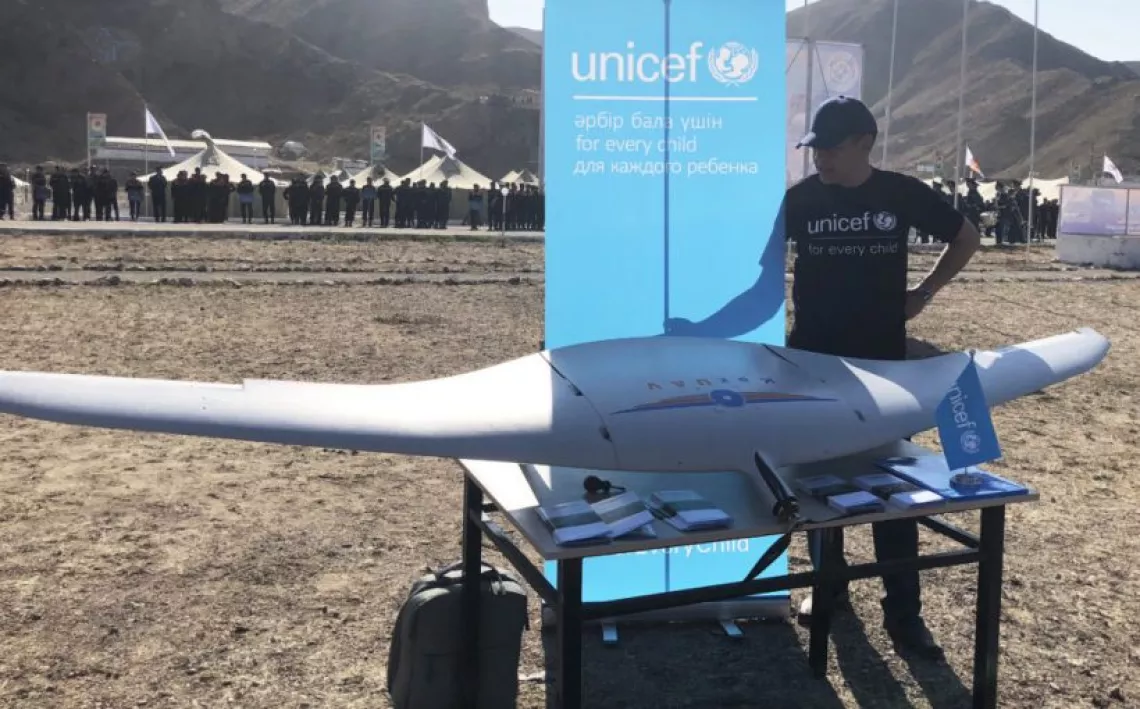
The China-Sierra Leone-UNICEF COVID-19 Pandemic Prevention and Control Knowledge Sharing and Experience Exchange Conference: August 2020
UNICEF Sierra Leone, UNICEF China, the China NGO Network for International Exchanges and representatives from civil society organizations from China and Sierra Leone took part in this event.
Civil society organizations play a vital role in communicating risks and engaging with communities to help mitigate COVID-19 and create world fit for children. This webinar was organized to explore opportunities for cooperation for emergency and development programmes, based on internationally tried and tested methods, in the best interests of children.
More than 30 participants from China and Sierra Leone discussed the critical role of civil society organizations in mitigating COVID-19 at the community level. This included how digital, radio and interpersonal platforms and social media can be used to collect and disseminate information about COVID-19; the need to focus on the most vulnerable populations such as children, women and the elderly; efforts to engage youth volunteers, traditional leaders and other influencers to raise public awareness for positive behavioural change in the context of COVID-19. Speakers also stressed the importance of evidence and data in shaping these approaches.
Press Release:
Kazakhstan-China Exchange on Emergency Management and Disaster Reduction in the Best Interests of Children
UNICEF Kazakhstan, UNICEF China, the National Disaster Reduction Center of China (NDRCC), Kazakhstan’s Center for Emergency Situations and Disaster Risk Reduction (CESDRR), and Kazakhstan’s Emergency Committee took part in this event.
Both China and Kazakhstan – like many countries around the world – are not spared from natural disasters that affect economic and social development, children’s health, education and development. Kazakhstan and China are both exploring how drones can be used in emergency situations. Exchanging knowledge and experiences in this field can accelerate the achievement of the Sustainable Development Goals for children.
Government partners from the two countries, including representatives from the respective ministries responsible for managing emergency situations, and officials from 17 regions and local emergency departments from Kazakhstan, shared knowledge on managing emergencies and reducing the risk of disasters and discussed the use of drones in emergencies - all in the best interests of children.
Press Release
National Pathways to Child Poverty Reduction under the 10th Forum on China-Africa Cooperation (FOCAC) Africa-China Poverty Reduction and Development Conference
UNICEF, International Poverty Reduction Center in China (IPRCC), China’s State Council Leading Group Office of Poverty Alleviation and Development (LGOP), and delegates from seven African countries took part in this event.
Africa’s burgeoning population (home to one billion children and more than 40 per cent of the world’s children by 2058) presents both opportunities and challenges. The opportunity lies in the potential to increase investment in human capital development - through sharing of knowledge across borders. UNICEF China promoted the sharing of knowledge and practices on ending child poverty between China and other developing countries through South-South cooperation.
Delegates from seven African countries and China discussed the importance of understanding, measuring and monitoring both income and multi-dimensional deprivations faced by children. The aim is to identify child-centered and cost-effective solutions, and to ensure that governments and development partners are on the right track of delivering national priorities and the Sustainable Development Goals. Delegates also echoed the critical need to increase investment in children by governments and development partners. During this event, the Vice Minister of LGOP and Regional Director of UNICEF Eastern and Southern Africa Regional Office (ESARO) agreed to explore collaboration with governments in Africa on channeling financial assistance and investment in human capital.
Press Release


